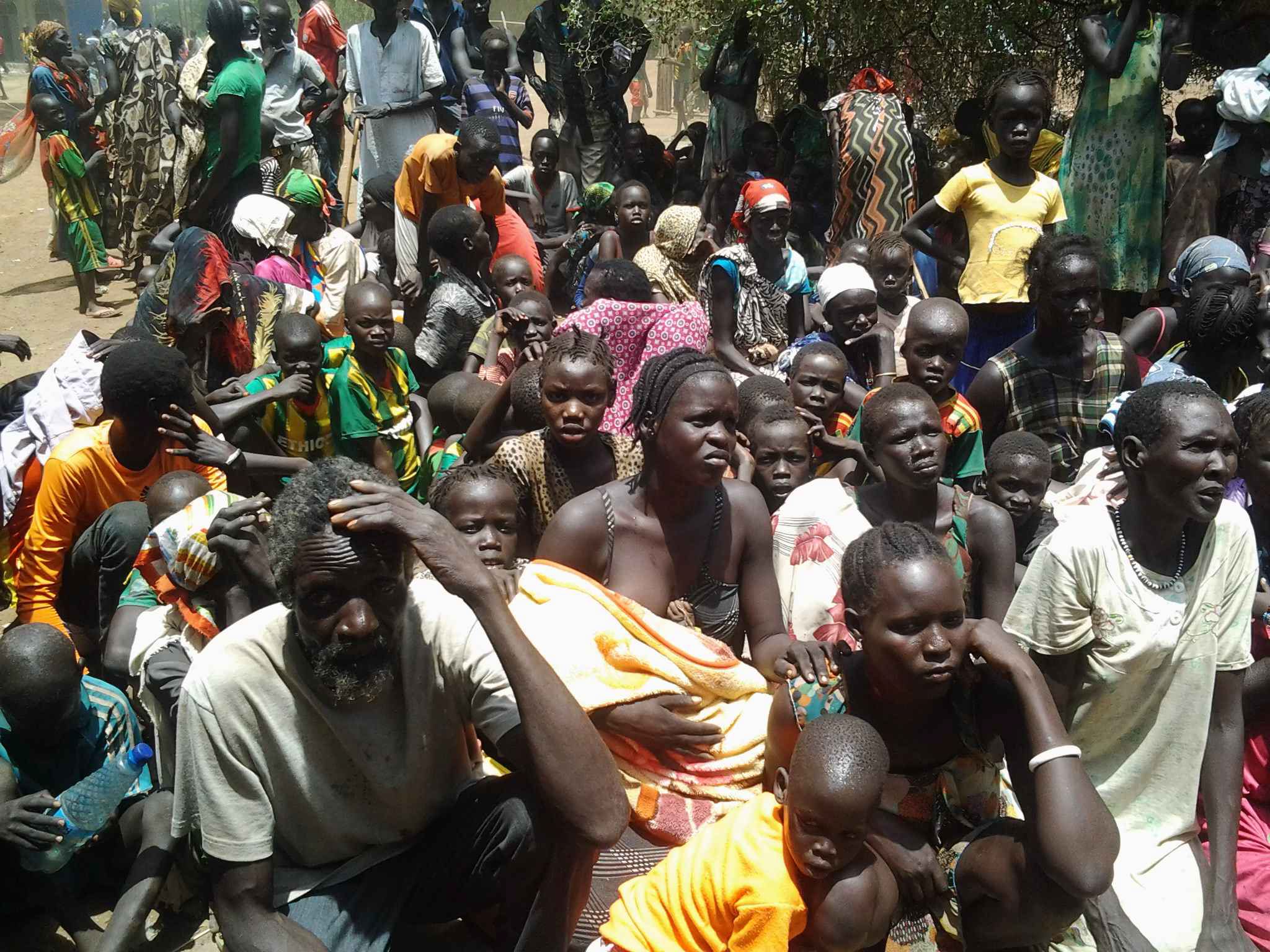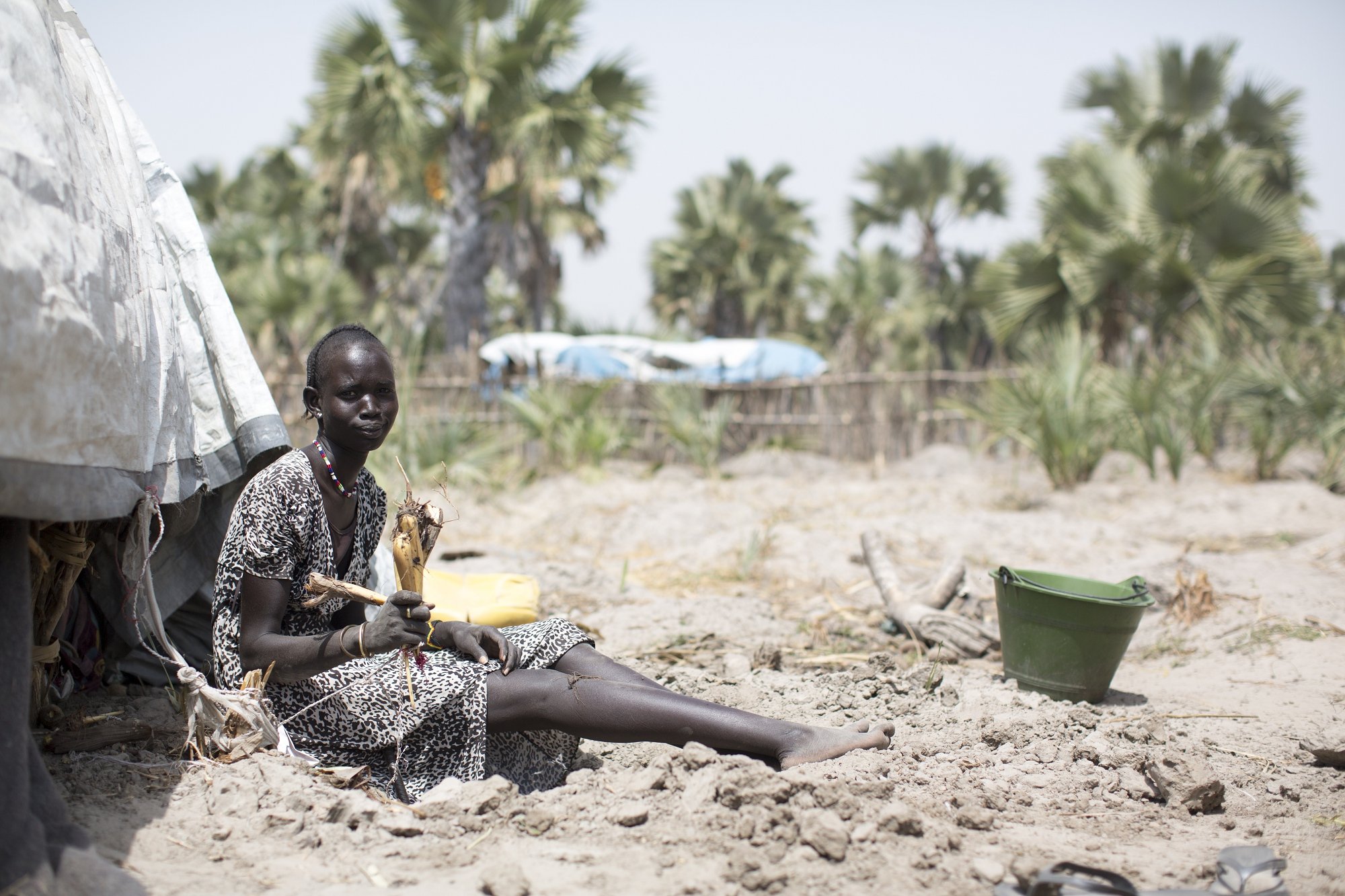Almost 80,000 South Sudanese flee to neighbouring countries as fighting generates more displacement
Almost 80,000 South Sudanese flee to neighbouring countries as fighting generates more displacement

GENEVA, January 14 (UNHCR) - The UN refugee agency reported on Tuesday that more South Sudanese civilians were deserting their homes and crossing into neighbouring Uganda, Ethiopia and Kenya, as well as volatile regions of Sudan to escape from continuing violence.
UNHCR spokesman Adrian Edwards told journalists in Geneva that some 78,000 people had fled to neighbouring countries since mid-December. More than half have headed for Uganda's West Nile region straddling South Sudan and the Democratic Republic of the Congo.
"In all, 42,654 mostly women and children, from Nimule in South Sudan, are now in the Ugandan districts of Arua, Adjumani and Kiryandongo," Edwards said. "According to colleagues, many men are taking their families to the Ugandan border and leaving them there before returning back to their country. From the refugees we have spoken to we are hearing eye-witness accounts of killings, houses being burnt and shooting," he added.
One woman, 65-year-old Adau from the town of Bor, said she had seen people being shot. "Houses were burning and people were being killed . . . from morning till evening people were shooting," she told UNHCR staff at the Dzaipi transit centre in Adjumani district, by the border with Nimule.
With more than 32,500 people, Dzaipi has the largest concentration of refugees, but it was designed to only host 400, so most of those there are having to sleep in the open with their children. They complain of cold at night. "Here [in Dzaipi] life is too hard," said Adau, who was staying in a communal shelter with 9 family members.
"As well as shelter, they need clean water, food, and basic household goods. As more people continue to arrive daily at Dzaipi we are working with the Ugandan authorities to set up additional camps," Edwards said.
Ethiopia is also seeing an upsurge in arrivals. More than 18,600 South Sudanese have crossed into the Akobo area from the Jonglei region and UNHCR is beefing up its staff presence to better monitor new arrivals and respond to their needs.
Kenya has also seen 6,778 arrivals from Jonglei state. Edwards said UNHCR was concerned by the large presence of children among them and was planning a joint assessment mission with UNICEF to find out more about their situation, and the needs - including family reunification or foster care for those who are separated or unaccompanied.
In Sudan, available estimates are that 10,000 have crossed into West and South Kordofan, two states that are themselves volatile. "The majority are nomads and, so far, we have not been able to verify exact numbers due to lack of access," Edwards noted.
However, the government of Sudan says that, so far, only 1,371 of the new arrivals are South Sudanese refugees. UNHCR, World Food Programme and other partners are providing assistance to these people via local partners, as well as to some of the nomads who are in dire need of humanitarian assistance.
"With fighting still being reported in parts of South Sudan-mainly in the states of Jonglei and Upper Nile - and the slow progress in the political talks in Addis Ababa, we are anticipating further displacement both within and beyond the borders of South Sudan," Edwards warned.
Internal displacement figures are now at 355,000, up from 200,000 last week. The added displacement is being fuelled by the fighting itself as well as by fear of it, combined with deteriorating living conditions, including a lack of food in some markets.
Despite the challenges UNHCR continues to provide assistance to 230,000 refugees in 10 camps in South Sudan. The agency is planning to begin food distribution on Wednesday for some 77,000 Sudanese refugees in the camps of Yida and Ajuong Thok in Unity state, with the support of the UN peace-keeping mission in South Sudan, which has agreed to redeploy troops to secure Yida.








